Core Summary
The state-of-the-art Mass Spectrometry core facility, sponsored and maintained by the Loma Linda University School of Medicine, opened in 2007. This facility’s primary goal is to serve the needs of investigators at Loma Linda University, including the Loma Linda University Medical Center and the Pettis Veterans Affairs Medical Center, in the analysis of proteins, peptides and other macromolecules by mass spectrometry. While its first priority is to serve the Loma Linda research community, this facility is also available to researchers from outside Loma Linda University.
Personnel/Contact Information:
Guangyu Zhang, PhD
Role: Director, LLUMS Core facility (LLUMSCF)
Email: [email protected]
Mortensen Hall Room 230, LLUSM, Loma Linda, CA 92350
Telephone: 909-558-1000 ext. 15875 or 909-651-5875
FAX: 909-558-4035
Valery Filippov, Ph.D.
Role: Assistant Director, LLUMSCF
Email: [email protected]
Mortensen Hall Room 214, LLUSM, Loma Linda, CA 92350
Telephone: 909-558-1000 ext. 48668
Fax: 909-558-0177
Facilities and Equipment:
Location of Core: Loma Linda University, School of Medicine, Mortensen Hall Room 230, Loma Linda, CA 92350
Major Equipment:
Orbitrap Exploris 240
Thanks to the Fletcher Jones Foundation, the mass spectrometry core facility had the opportunity to purchase the newest Thermo Orbitrap series mass spectrometer Orbitrap Exploris 240. The Thermo Scientific Orbitrap Exploris 240 mass spectrometer delivers leading performance and versatility to drive discovery and identification with the quantitative precision and accuracy to confidently scale up while achieving impact, and from small- to large-molecule analyses. Operational simplicity with intelligent data acquisition helps discovering fast track to confident results, across a range of applications. Using proven Thermo Scientific Orbitrap mass analyzer technology enables addressing any challenge and achieving objectives with excellence.
The Orbitrap Exploris 240 has been designed to give the performance required for high-throughput analyses, biopharmaceutical characterization, proteomics and metabolomics research. This instrument expands our core facility’s capabilities to include both proteomics and metabolomics on one system, all with exceptional data quality and robustness that leads to publishable results and actionable outcomes. Using FAIMS Pro interface can overcome sample complexity and matrix interference to achieve unprecedented qualitative and quantitative performance. This differential ion mobility device seamlessly integrates into existing workflows providing orthogonal selectivity to enhance signal-to-noise ratios, expand sample coverage, and increase throughput while maintaining high data confidence.
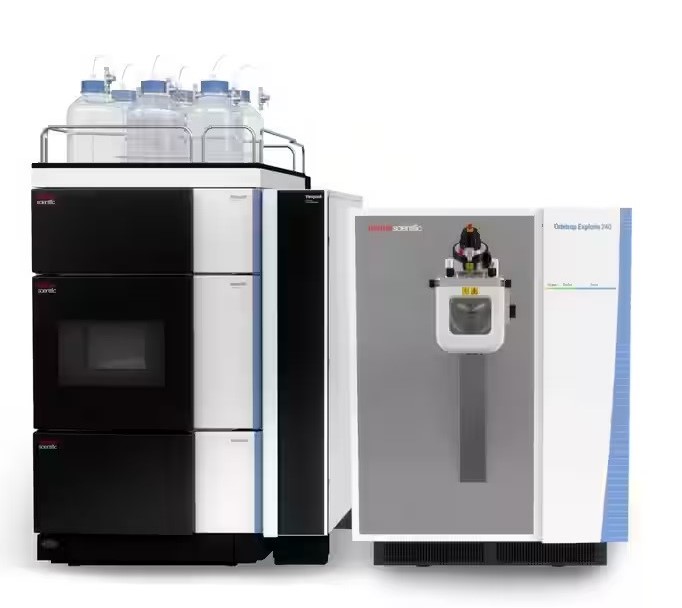
LTQ-Orbitrap Velos with ETD
The LTQ-Orbitrap-Velos-ETD represents the latest generation of high resolution mass spectrometers, possesses different ion fragmentation capabilities including CID, PQD, ETD, and HCD. It can handle a variety of applications including identification and quantification of protein post-translational modifications, identification/quantification of proteins for biomarker identification or protein pathway analysis using iTRAQ or TMT quantitative proteomics approaches, as well as top-down analysis of intact proteins. The instrument typically is typically operated by a dedicated facility staff.
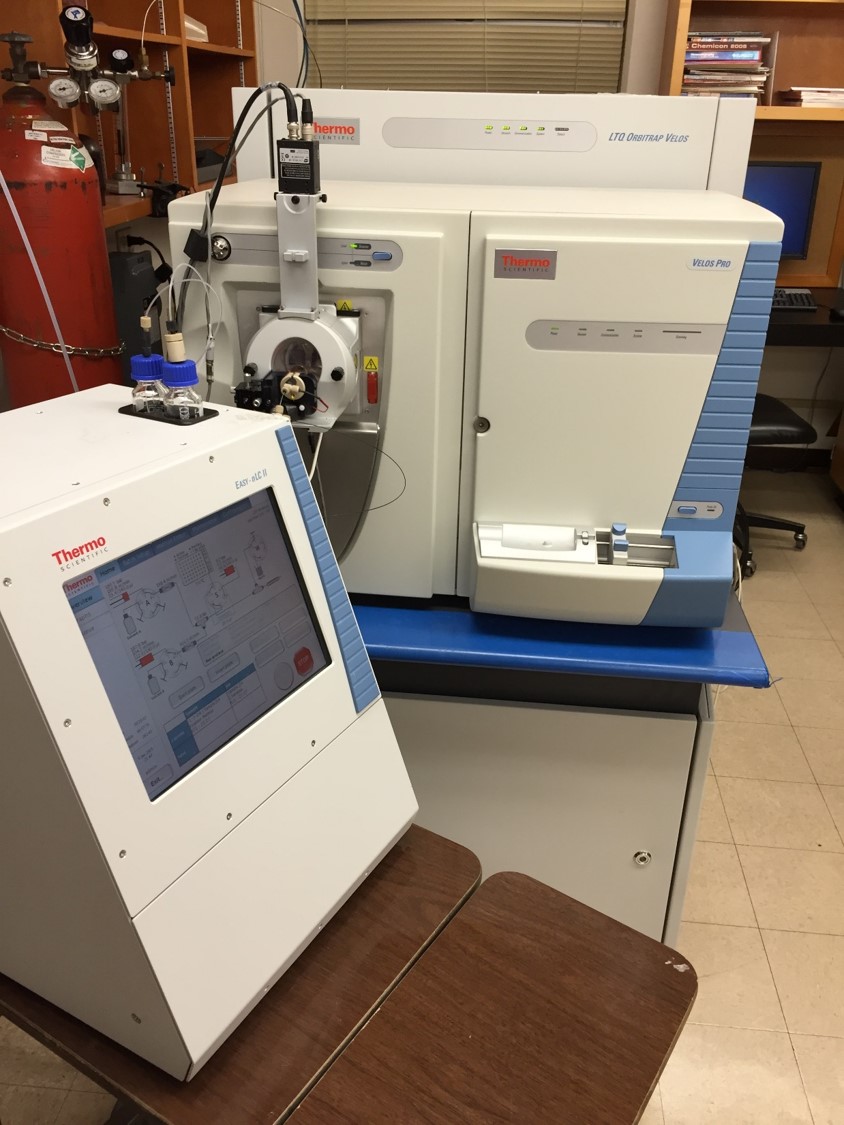
GC/MS with electron impact ionization (EI), chemical ionization (CI)
The Agilent GC-MSD series is a single quadruple mass spectrometer with unit resolution. This instrument is dedicated to separation (by GC), identification (by MS) and quantification (by SIM scan mode) of non-polar small organic mixtures. Polar compounds are derivatized with TMS or other types of derivatization reagents before introduction to the GCMS system.
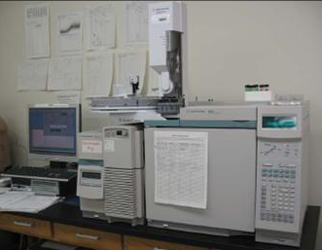
QQQ
The Agilent triple quadruple mass spectrometer is linked with an Agilent 1200 HPLC and PAL autosampler housing six 96-well plates. It has the capability of performing electrospray (ESI in both positive and negative mode) mass analysis and has the features of product-ion scan, precursor-ion scan, selective-ion scan (SIM) and multiple-ion-scan (MRM). The MRM mode is very specific and highly sensitive for quantification of polar small organic molecules or peptides. For small molecules, the sensitivity (LOD) is about 1 pico-gram on a HPLC column).
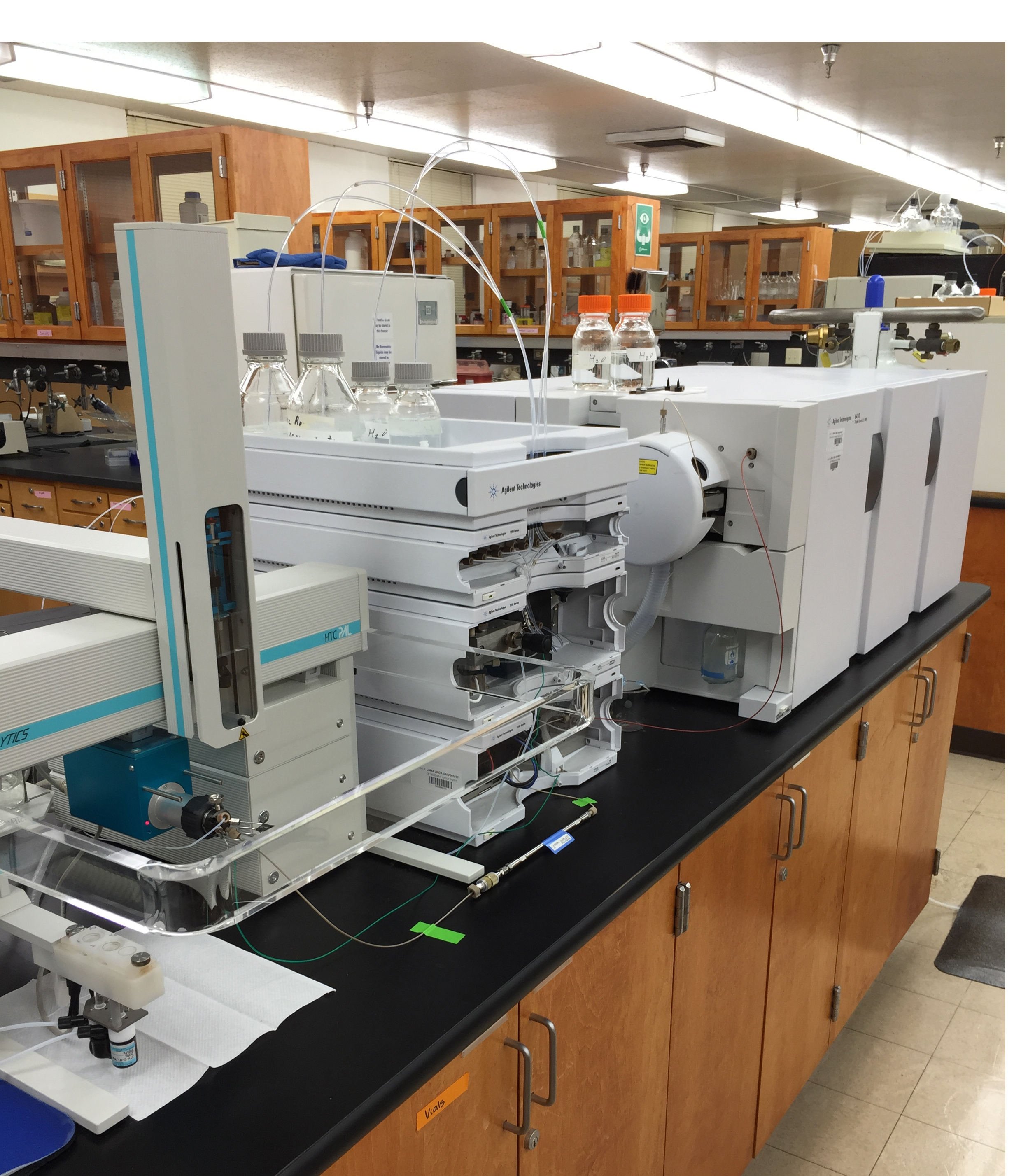
MALDI
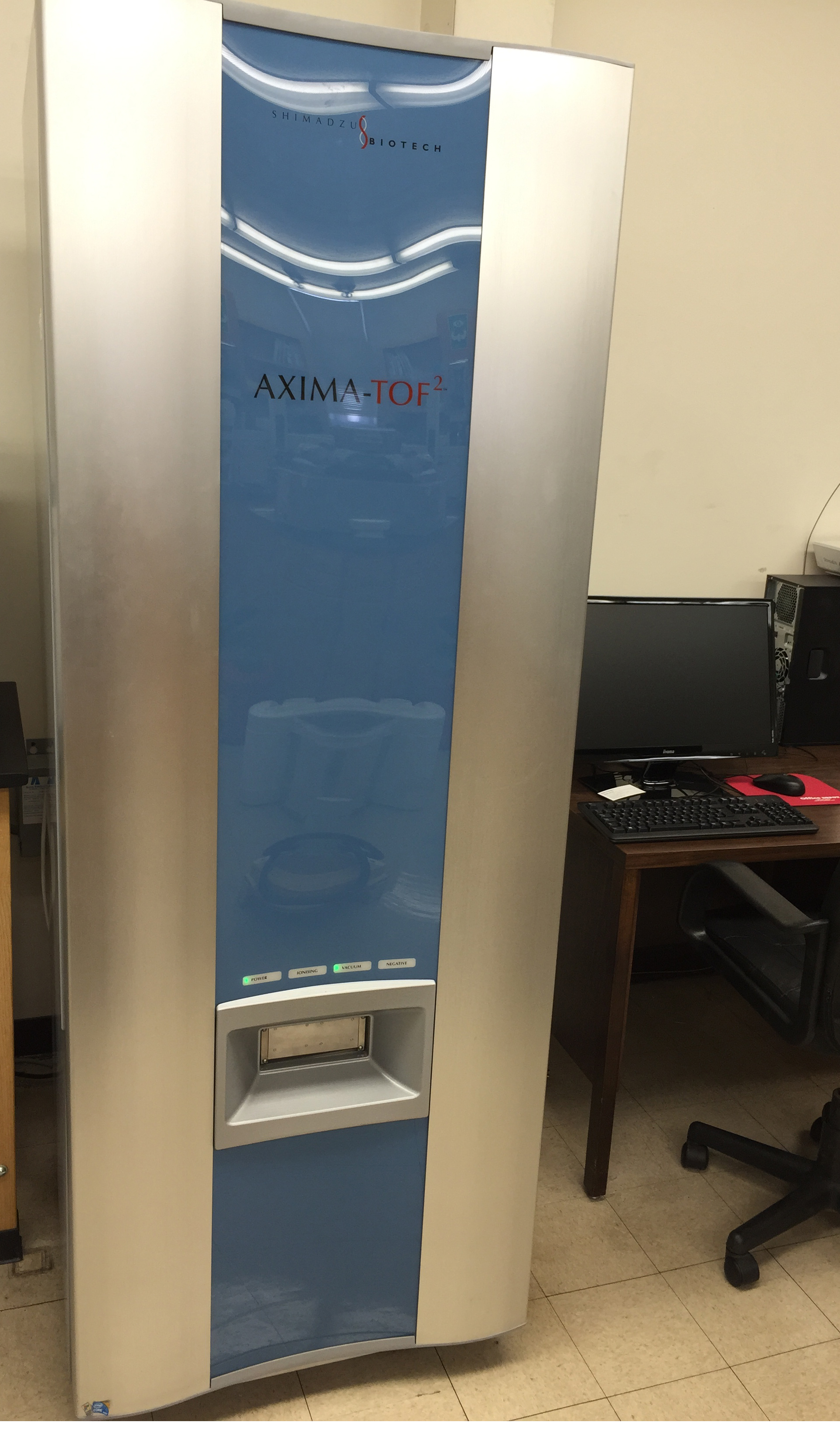
LCQ
The LCQ Deca XP is used complementarily for QTOF instrument for protein identification.
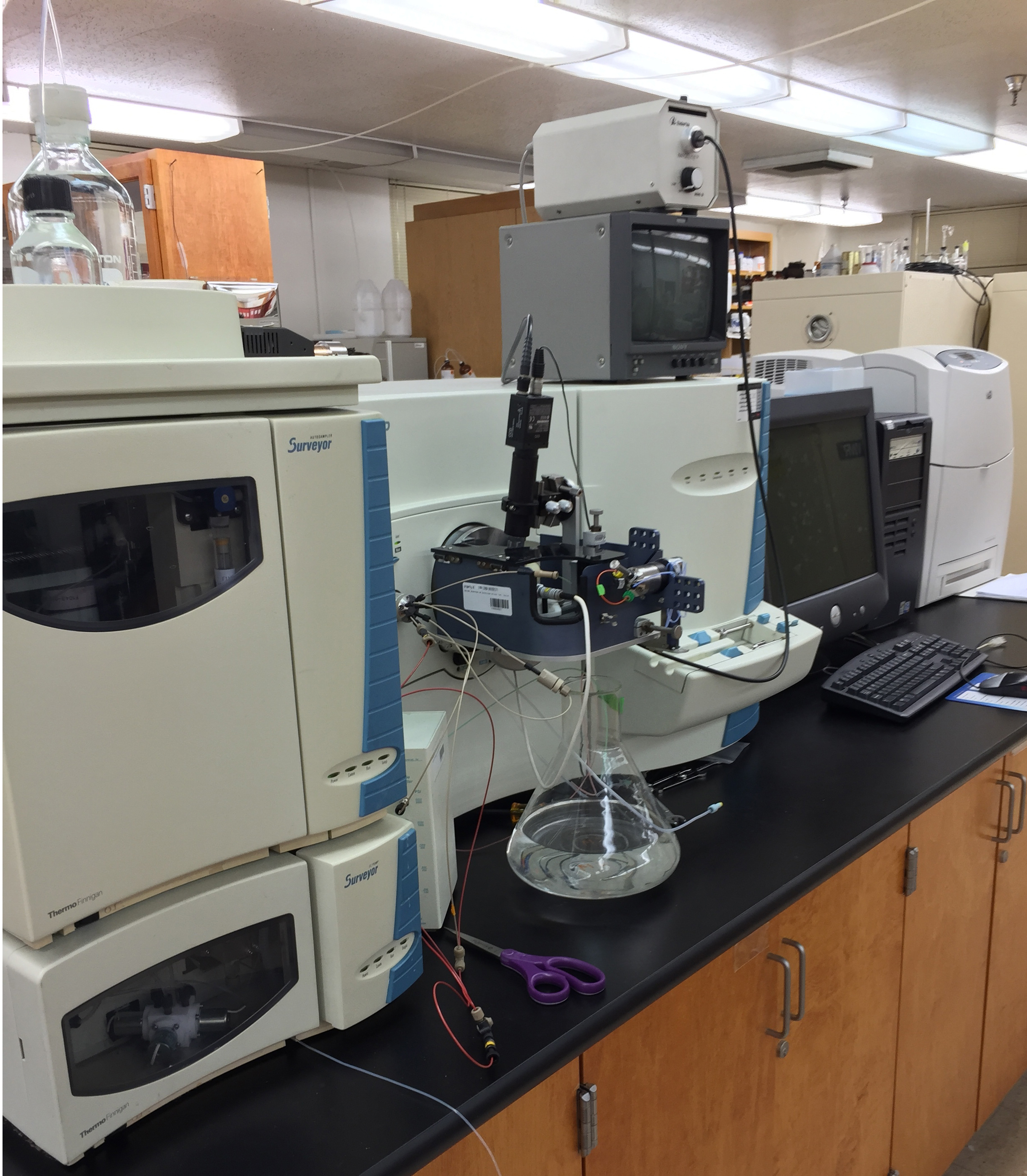
Services:
- Protein identity from SDS-PAGE gel bands/spots & complex mixture of proteins in solution
- Differential protein expression analysis (biomarker identification)
- Protein post-translation modification analyses (phosphorylation, glycosylation)
- Qualitative and quantitative analysis of small molecules by LC/MS and GC/MS
